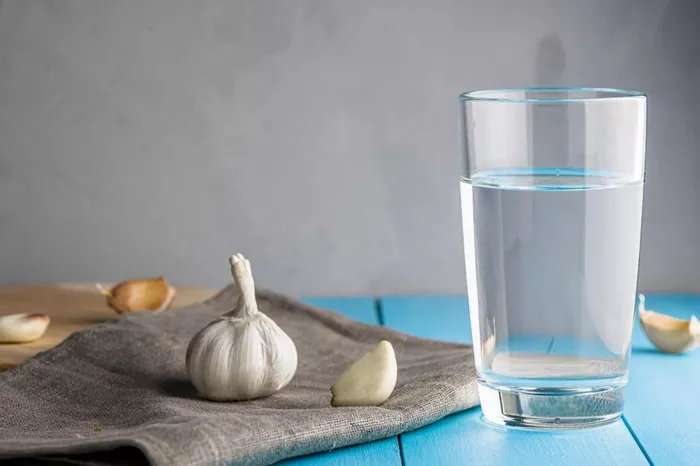High blood pressure, also known as hypertension, is a common condition that can lead to serious health complications, such as heart disease, stroke, and kidney failure. Managing blood pressure is crucial for maintaining overall health, and dietary modifications often play a significant role in this management. One such dietary element that has garnered attention for its potential blood pressure-lowering effects is garlic. This article explores the scientific evidence behind the claim that garlic can help lower blood pressure and delves into the mechanisms, benefits, and practical considerations of incorporating garlic into your diet for hypertension management.
The Role of Diet in Blood Pressure Management
Dietary choices have a significant impact on blood pressure levels.
Diets rich in fruits, vegetables, whole grains, lean proteins, and low-fat dairy products are often recommended for maintaining healthy blood pressure. Additionally, reducing sodium intake, moderating alcohol consumption, and maintaining a healthy weight are crucial strategies.
See Also: walking can lower blood pressure
Garlic: A Brief Overview
Garlic (Allium sativum) is a member of the Allium family, which includes onions, leeks, and shallots. It has been used for centuries in various cultures for both culinary and medicinal purposes. Garlic contains several bioactive compounds, including allicin, which is responsible for its distinctive odor and many of its health benefits.
Garlic And Blood Pressure: The Scientific Evidence
Several studies have investigated the effects of garlic on blood pressure, yielding promising results. A systematic review and meta-analysis of randomized controlled trials published in the journal BMC Cardiovascular Disorders concluded that garlic supplementation significantly reduced both systolic and diastolic blood pressure in hypertensive individuals. The reduction in systolic blood pressure was, on average, 8-10 mmHg, while diastolic blood pressure was reduced by 5-6 mmHg.
Another study published in Hypertension journal found that aged garlic extract effectively lowered blood pressure in individuals with uncontrolled hypertension despite being on standard antihypertensive medication. This study highlighted the potential of garlic as an adjunct therapy in hypertension management.
See Also: Several Causes of Hypotension You May Not Know
Mechanisms of Action
The blood pressure-lowering effects of garlic are attributed to several mechanisms:
Allicin Production: When garlic is crushed or chopped, the enzyme alliinase converts alliin into allicin. Allicin is known to have vasodilatory effects, meaning it helps relax blood vessels, thereby reducing blood pressure.
Nitric Oxide Production: Garlic increases the production of nitric oxide, a molecule that relaxes blood vessels and improves blood flow.
Antioxidant Properties: Garlic contains antioxidants that help reduce oxidative stress, which is a contributing factor to hypertension.
Anti-inflammatory Effects: Chronic inflammation is associated with high blood pressure, and garlic’s anti-inflammatory properties can help mitigate this.
Reduction of Angiotensin II: Garlic inhibits the activity of angiotensin-converting enzyme (ACE), which decreases the production of angiotensin II, a molecule that constricts blood vessels and raises blood pressure.
Types of Garlic Preparations And Their Efficacy
Various forms of garlic are available, each with differing levels of efficacy:
Fresh Garlic: Contains the highest levels of allicin when crushed or chopped. However, the taste and odor can be strong for some individuals.
Aged Garlic Extract: This form is made by aging garlic for up to 20 months, which reduces the odor and enhances its beneficial properties. Studies suggest aged garlic extract is particularly effective for lowering blood pressure.
Garlic Powder: Used in cooking, it retains some health benefits but has lower allicin content compared to fresh garlic.
Garlic Oil: Contains several sulfur compounds, but the allicin content is lower than in fresh garlic.
Garlic Supplements: Available in capsules and tablets, these are convenient for those who dislike the taste or odor of fresh garlic. The efficacy varies depending on the preparation method and allicin content.
Incorporating Garlic Into Your Diet
For those looking to use garlic as a natural remedy to help lower blood pressure, there are several ways to incorporate it into your diet:
Culinary Uses: Fresh garlic can be added to a variety of dishes, including soups, salads, stir-fries, and marinades.
Crushing or chopping garlic and letting it sit for a few minutes before cooking can enhance its allicin content.
Garlic Supplements: If the taste or odor of garlic is a concern, supplements are a viable alternative. It is important to choose high-quality supplements standardized to contain a significant amount of allicin.
Aged Garlic Extract: This can be taken as a supplement and is particularly effective due to its enhanced properties and reduced odor.
Dosage And Safety Considerations
The effective dosage of garlic for lowering blood pressure varies depending on the form used. For fresh garlic, studies suggest that consuming 2-3 cloves per day can be beneficial. For aged garlic extract, doses of 600-1,200 mg per day have been shown to be effective in clinical studies.
While garlic is generally safe for most people, it can cause side effects in some individuals, including digestive issues, bad breath, and allergic reactions. Garlic can also interact with certain medications, such as blood thinners and anticoagulants, potentially increasing the risk of bleeding. Therefore, it is important to consult with a healthcare provider before starting any new supplement regimen, especially if you are taking medications or have underlying health conditions.
Conclusion
Will garlic help lower your blood pressure? The scientific evidence suggests that it can. Garlic’s bioactive compounds, particularly allicin, contribute to its blood pressure-lowering effects through various mechanisms, including vasodilation, increased nitric oxide production, antioxidant properties, anti-inflammatory effects, and ACE inhibition. Incorporating garlic into your diet, whether through culinary use or supplements, can be a beneficial strategy for managing high blood pressure. However, it is essential to approach this natural remedy with consideration of potential side effects and interactions with medications. As always, consulting with a healthcare professional is recommended to tailor any dietary or supplement interventions to your individual health needs.

